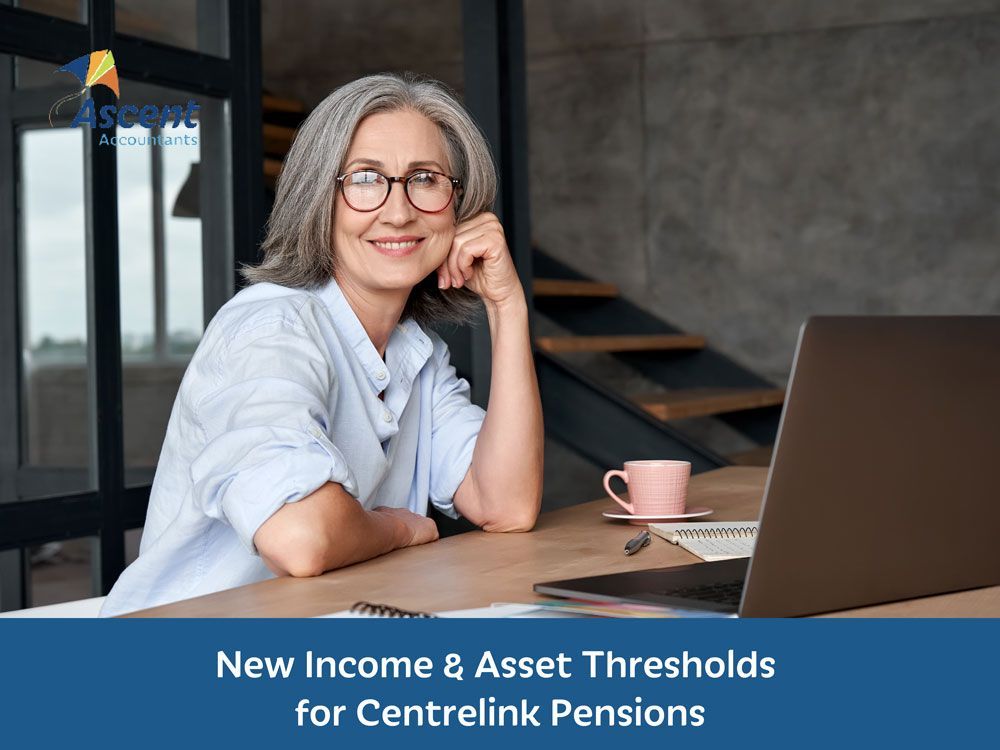New Income & Asset Thresholds for Centrelink Pensions

In a significant update from Centrelink, we're about to see a sizeable jump in the means test thresholds. The increase is projected to be nearly 8%, which will allow numerous seniors the opportunity to claim a part-age pension for the first time.
Even more exciting, these pivotal changes aren't only for seniors. They also encompass disability support pensions, carer payments, and those on a Department of Veterans Affairs war service pension.
Centrelink's longstanding practice has been to index its means test thresholds annually on July 1. These adjustments are based on the prevalent inflation rate. Given the historic lows that inflation rates have maintained over the past decade, the increases in the means test have, by and large, been relatively modest. However, that trend seems to have come to an end.
Centrelink's Testing Mechanism
Centrelink employs two specific tests — the income test and the asset test. The applicable test is the one which results in the lowest rate. It's possible for an individual to clear one test, only to be held back by the other if they surpass the stipulated upper limits.
1. Income Test
The income-free area for single pensioners is set to increase by $14 per fortnight, marking a rise from $190 to $204.
For couples, the collective income-free zone will now stand at $360 per fortnight — an uplift of $24 per fortnight. Centrelink now considers couples a singular unit — this means that the entire assessed income could be drawn by just one partner.
In total terms, the assessable income for singles can now touch $2,332 every fortnight, while still qualifying for a part-pension. For couples, this amount is pegged at $3,568, which can rise further if they're separated due to illness.
2. Deeming Rate Thresholds
Deeming rates serve as a nominal interest rate applied to all financial assets, regardless of their actual earnings, to determine the fortnightly amount under the income test. Such financial assets encompass bank accounts, shares, managed funds, superannuation assets, account-based pensions, cash, and bullion.
A lower deeming rate of 0.25% annually will be applied to the first $60,400 for singles and $100,200 for couples. Any financial assets surpassing these figures are deemed at an interest rate of 2.25%. These rates are set to remain unchanged until July of the subsequent year.
3. Asset Test
This test deducts $3 from the pension for every $1,000 that exceeds the thresholds — the family home remains exempt from this test, regardless of its valuation.
As of July 1, single homeowners can possess assets up to $301,750 and still be eligible for a full pension, marking an increase of $21,750. For couples, this limit has risen by $32,500, bringing the total to $451,500.
The upper cut-off thresholds are now pegged at $656,500 for singles and $986,500 for couples — the latter approaching the $1 million mark, exclusive of their primary residence. Moreover, non-homeowners are permitted an additional $242,000 in assets.
Don’t Be Deterred!
Approaching the new thresholds should not deter potential claimants. The minimum annual reception for singles stands at over $1,400, and for couples, it exceeds $2,200. Furthermore, part-pensioners from Centrelink are entitled to the Pensioner Concession Card, which unlocks thousands in discounts.
Stay Up to Date with Current Thresholds
This revamp in Centrelink's income and asset thresholds is a monumental shift, broadening the horizon for many seniors and other eligible beneficiaries. With this shift, it’s important to stay updated and ensure you are receiving what you're entitled to. You can visit the Centrelink website at any time for current
information on assets and income and
see deeming rates here.
Partnering With You in These Changes
Navigating the intricacies of Centrelink's updated income and asset thresholds can be challenging for many. We can assist beneficiaries in making the most of these changes with services like asset structuring, income planning, tax implications, and more.
In essence, we’ll serve as a bridge between the you and Centrelink, ensuring all financial decisions work towards maximising Centrelink benefits. Our expertise can help demystify this confusing area, leading to better informed and potentially more profitable decisions.
To get started, contact us today.
Need help with your accounting?








